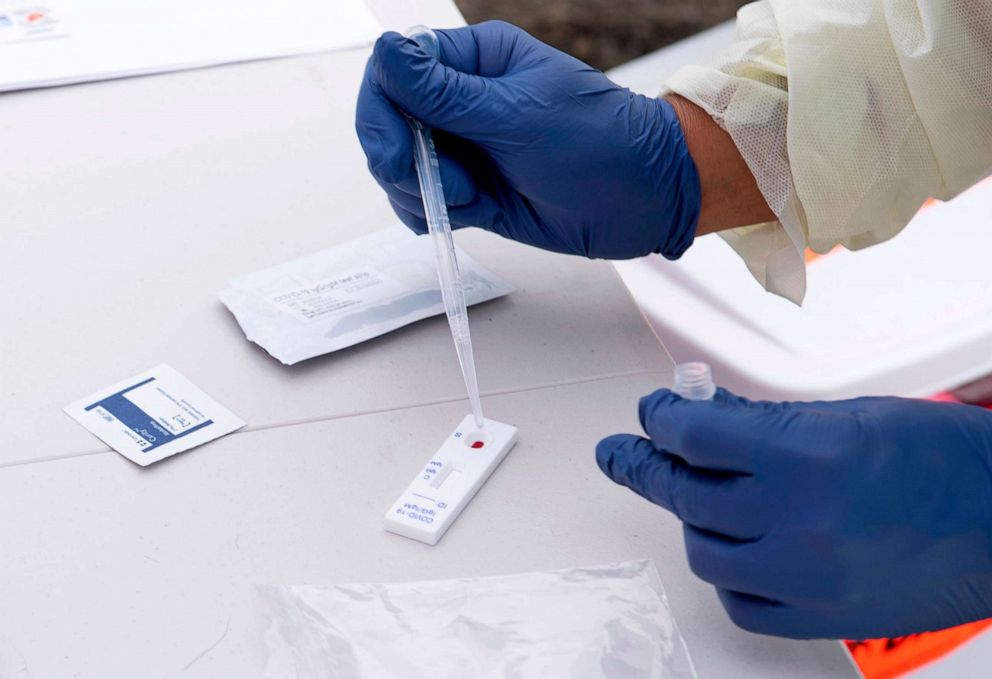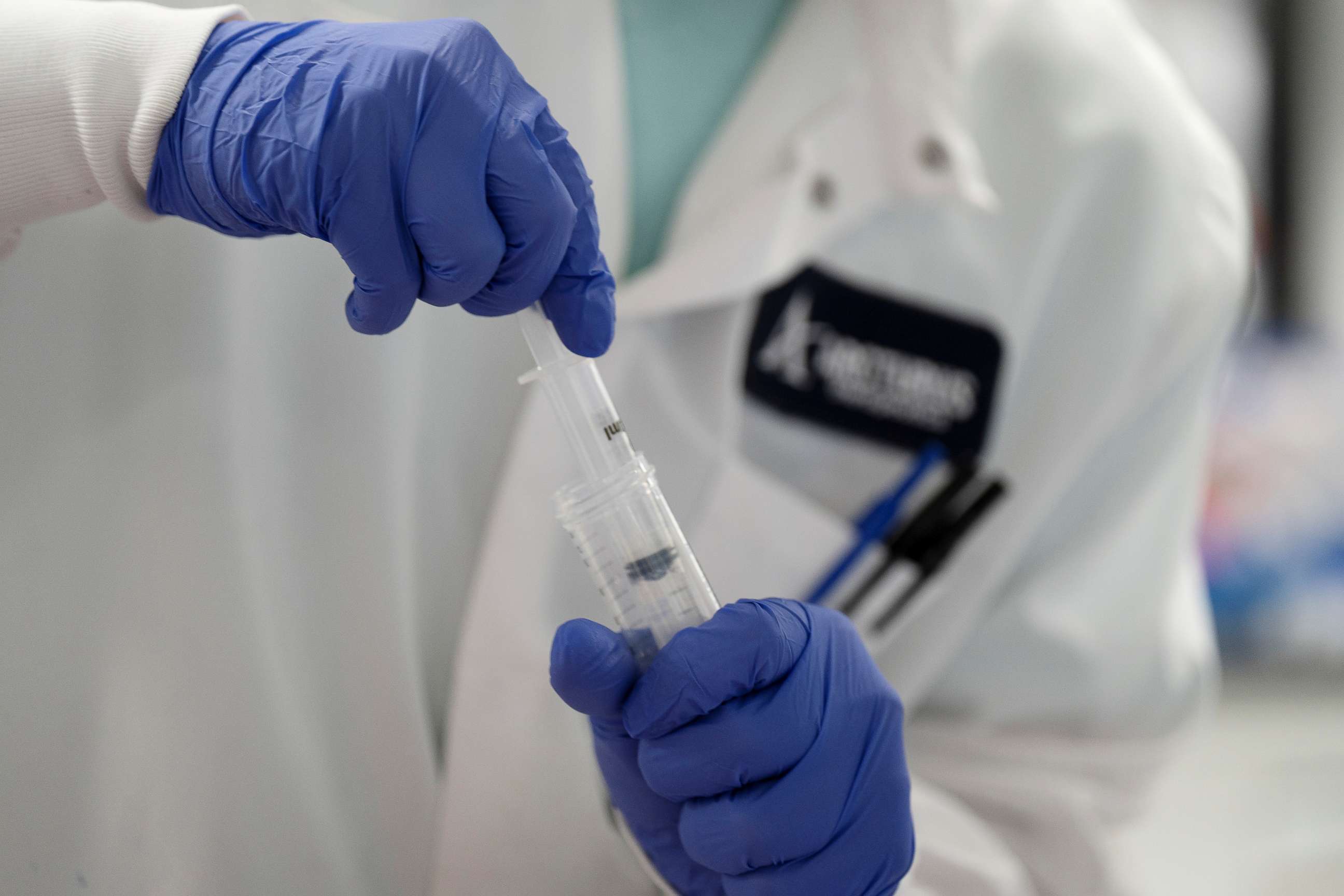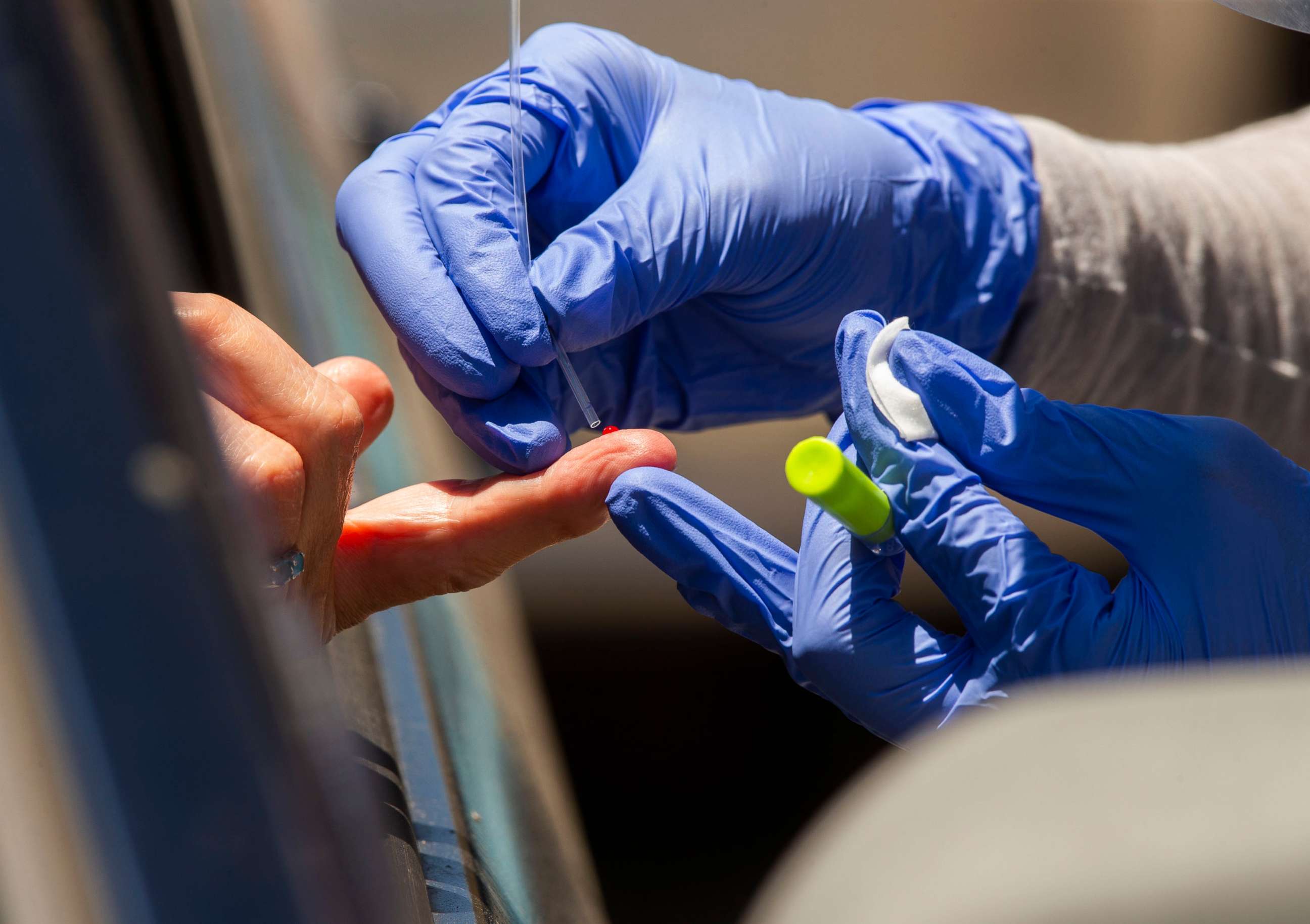Vaccine paradox: Will 'flattening the curve' stymie the chances of developing a coronavirus vaccine quickly?
Fewer COVID-19 cases could slow the pace of research, experts say.
In recent weeks, cities and states across the country have seen a steady decline of COVID-19 cases.
But even as many doctors breathe a quiet sigh of relief, those racing to develop a COVID-19 vaccine are growing increasingly worried this good news will stymie efforts to find a vaccine quickly.
Vaccines can only be studied in places where outbreaks are ongoing. That's because the studies themselves rely on volunteers getting exposed to the virus to prove the vaccine actually works.
Snuff out an outbreak, and the pace of research slows to a crawl.
While the nation's top infectious disease doctor, Anthony Fauci, has optimistically estimated that a vaccine could be ready by January 2021, experts say this timeline could be pushed back if we see a dramatic drop off in new infections.
This will become increasingly important as we move out of the early safety studies -- which only include a small handful of healthy adults -- and into massive vaccination studies designed to determine effectiveness in large groups of people.
To have a vaccine by early 2021, "you'd have to do a trial where there were enough people in the placebo group who got sick," said Dr. Paul Offit, who co-invented the rotavirus vaccine and sits on the Food and Drug Administration's vaccine advisory committee. And, he said, "you would have to be doing it in a region or time when this virus is still causing disease."
"I've been worried for months that the standard way of doing a trial will take well into next year to get a result because of this tamping down of the virus," said Dr. Arthur Caplan, director of the Division of Medical Ethics. New York University Grossman School of Medicine.

"You can start to see it in Oxford and Moderna," said Caplan in reference to two vaccine developers that already have relatively advanced research studies underway. "They are getting nervous that the virus there is going to lower the natural infection rate so they won't be able to interpret if the vaccine did anything, or if it's safe."
Last month, one of the lead researchers working on the Oxford vaccine told The Telegraph newspaper that the next stage of studies only had a 50% chance of success thanks to "the virus disappearing" in the United Kingdom.
And Rinke Bos, principal scientist and immunologist for Johnson and Johnson, told ABC News it's very difficult to set a timeline for vaccine development because "the trial has to be in a country where there is still a virus going around, so those are quite complicated discussions."
An Oxford spokesperson said ongoing studies will not be interrupted by this potential issue, and a Moderna spokesperson did not respond to ABC News' request for comment.
This paradox of vaccine development -- that we tend to gain control over an outbreak just as trials get up and running -- has felled prior vaccine development efforts.
In 2015, for example, the Zika virus swept across Latin America and vaccine researchers sprang into action, quickly launching research studies. But as the epidemic was brought under control, those studies were never completed.
To date, we still have no approved Zika virus vaccine, leaving us vulnerable to the next outbreak.
In this current coronavirus pandemic, doctors and vaccine developers are now considering new ways to keep research moving at a rapid pace so that a vaccine can be ready by next year.

One option is to launch studies in places like Brazil and India, where infections are currently on the rise.
"It makes sense to go to hotspots as trial sites," said Dr. Jennifer Miller, an assistant professor at Yale School of Medicine and founder of Bioethics International and the Good Pharma Scorecard.
"It's not just the U.S.," Offit said. Vaccine developers "have the world at their disposal."
But this approach could be challenging as well, with bioethicists warning it may not be ethical to conduct studies among citizens of one country, and then -- if the vaccine proves successful -- prioritize vaccination for the citizens of another.
Another option could be a so-called "challenge trial," which is also considered ethically fraught.
Normally, to see if a vaccine works, researchers give tens of thousands of volunteers either a placebo or an active vaccine shot. Those people are told to go about their daily lives, and typically only a small fraction will get exposed to the virus. If the people who got the placebo get sick but those who got the real shot do not, it's highly likely the vaccine has worked.
In a challenge trial, there's no wait-and-see. A small group of people are given the real shot -- then they are injected with live virus. If they don't get sick, the vaccine likely worked.
"Everyone agrees we want to save the most amount of lives possible using responsible means," said Miller. "If it's going to take too long allowing patients to naturally get infected, then we could shift to a challenge [trial]."

"I'm one of the outspoken advocates," of challenge trials, said Caplan. "I knew this would be an issue of recruitment months ago."
Caplan says that challenge trials would change the game in terms of the number of people that must volunteer -- dropping that number from more than 10,000 to less than 500, and dramatically accelerating the pace of research.
To reduce the risk that people die of COVID-19, these trials would only include healthy adults with no underlying medical conditions, Caplan said.
However, vaccine developers have not announced their intention to launch a challenge trial.
A spokesperson for Oxford said the research group would not consider doing so until more effective treatments were available for COVID-19, offering greater certainty that volunteers could be rescued should they fall ill from the virus.
"All I can say at this stage is that we are not currently looking at human challenge studies," the spokesperson said. "The current vaccine trials in the U.K. are still producing sufficient data for our work. We have been looking at expanding the trial into other regions where there are still increasing numbers of cases."
Because of the global nature of the pandemic, it's likely that other vaccine makers may also need to look beyond their borders and that future vaccine research will demand an unprecedented level of international cooperation.
What to know about the coronavirus:
- How it started and how to protect yourself: Coronavirus explained
- What to do if you have symptoms: Coronavirus symptoms
- Tracking the spread in the U.S. and worldwide: Coronavirus map
Tune into ABC at 1 p.m. ET and ABC News Live at 4 p.m. ET every weekday for special coverage of the novel coronavirus with the full ABC News team, including the latest news, context and analysis.




